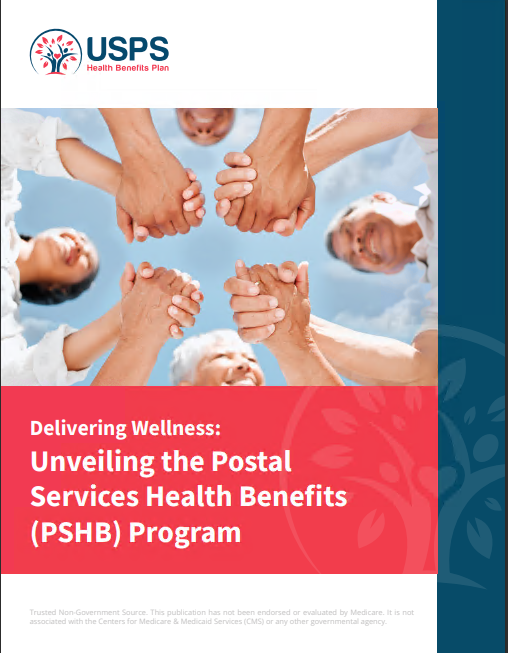Key Takeaways:
-
The 2025 Postal Service Health Benefits (PSHB) rollout introduces critical updates reshaping healthcare coverage for federal employees and retirees.
-
Exploring changes in premiums, deductibles, and Medicare integration ensures you’re prepared to make the most of your benefits.
A New Era in Federal Employee Healthcare
The 2025 rollout of the Postal Service Health Benefits (PSHB) program isn’t just a simple change—it’s a transformative moment in federal employee healthcare. For postal workers and retirees, this program replaces the Federal Employees Health Benefits (FEHB) system, bringing tailored options and unique opportunities to manage your healthcare.
If you’ve been relying on FEHB for years, this transition may feel daunting. But understanding the new landscape is the key to ensuring you continue receiving the care you need without breaking the bank. From premiums to Medicare coordination, PSHB introduces a suite of updates that can simplify your healthcare experience and potentially save you money.
Premiums: A Deep Dive into Your Costs
Understanding Premium Adjustments
For active employees, USPS continues to cover a significant share of your premiums, helping to keep costs competitive. But for retirees, the story shifts—particularly with the mandatory integration of Medicare Part B. This change means you’ll need to budget for both your PSHB premiums and the 2025 Medicare Part B premium, which is set at $185 monthly.
These adjustments aim to provide more comprehensive coverage, reducing your out-of-pocket expenses. However, you’ll need to carefully evaluate how your total costs align with your healthcare needs to make the best choice.
Balancing Premiums and Coverage Levels
When considering your options, think beyond the premium itself. A low-premium plan might seem appealing, but it often comes with higher deductibles and out-of-pocket maximums. If you expect regular medical care, a higher-premium plan with more robust coverage might save you more in the long term.
Deductibles: Breaking Down What You Pay
How Deductibles Work
Your deductible is the amount you’ll need to pay before your insurance coverage kicks in. For 2025, PSHB plans offer a range of deductibles, so it’s important to understand how each plan’s structure affects your overall costs. While some plans feature lower deductibles, they may come with higher monthly premiums, and vice versa.
Managing Your Deductible Effectively
-
Leverage Preventive Services: Many PSHB plans cover routine screenings, check-ups, and vaccinations without applying them to your deductible.
-
Plan Large Expenses Strategically: If you’re close to meeting your deductible, consider scheduling major medical procedures before the year ends.
-
Utilize Tax-Advantaged Accounts: Flexible Spending Accounts (FSAs) and Health Savings Accounts (HSAs) allow you to use pre-tax dollars for eligible expenses, making it easier to manage out-of-pocket costs.
Medicare and PSHB: A New Partnership
Mandatory Enrollment in Medicare Part B
One of the most significant changes in the PSHB program is the requirement for many retirees to enroll in Medicare Part B. This integration helps streamline coverage, with Medicare serving as the primary payer for outpatient services and PSHB plans covering secondary costs. While Medicare Part B introduces an additional premium, the reduction in out-of-pocket expenses often balances this cost.
Coordination of Benefits
For 2025, the combination of Medicare and PSHB plans offers comprehensive coverage. Medicare Part B handles the bulk of your doctor visits and outpatient services, while PSHB takes care of additional costs like coinsurance and prescription drugs. This dual coverage helps ensure that you’re protected against high medical expenses.
Income-Based Premiums
Keep in mind that Medicare Part B premiums increase for higher-income earners. It’s essential to check your income bracket to understand how much you’ll pay and incorporate this into your healthcare budget.
Expanded Provider Networks and Care Options
Nationwide Access to Care
The PSHB program introduces an extensive provider network, ensuring you’ll have access to top-tier care no matter where you live. For retirees who travel frequently or split time between residences, this nationwide reach offers unparalleled convenience.
Preventive Care at the Forefront
Preventive services are a cornerstone of the PSHB program, emphasizing early intervention and wellness. These services often come at no additional cost, encouraging you to stay proactive about your health.
Specialized Care Options
If you have unique healthcare needs, such as managing chronic conditions, PSHB plans are designed to support you with access to specialists and comprehensive treatment options. Reviewing each plan’s network and benefits will help you choose the best fit for your situation.
Your Open Season Checklist
Mark the Dates
Open Season runs from November 11 to December 9, 2024. During this time, you can:
-
Enroll in a new PSHB plan.
-
Update your existing plan to better suit your needs.
-
Adjust your family’s coverage.
Decisions made during Open Season take effect on January 1, 2025. Missing this window means you’ll need to wait another year unless you experience a qualifying life event.
How to Prepare
Preparation is crucial for making the most of Open Season:
-
Evaluate Your Healthcare Needs: Reflect on the medical services you and your family use most often.
-
Compare Plan Options: Use comparison tools to analyze premiums, deductibles, and out-of-pocket limits.
-
Consider Medicare Integration: If you’re Medicare-eligible, factor in how your PSHB plan complements your Medicare coverage.
-
Review Prescription Drug Coverage: Ensure your medications are included in the formulary of the plan you choose.
Managing Prescription Drug Costs
2025 Medicare Part D Updates
One major update is the $2,000 cap on out-of-pocket prescription drug costs under Medicare Part D. This new limit provides significant financial relief for those managing expensive medications.
Tips for Lowering Drug Costs
-
Stick to In-Network Pharmacies: Filling prescriptions within your plan’s network can reduce costs.
-
Opt for Generic Medications: Generics are often much cheaper and equally effective as brand-name drugs.
-
Use Mail-Order Services: Many plans offer lower copays for prescriptions filled through mail-order programs.
Navigating Your Healthcare Choices
Balancing Cost and Coverage
Finding the right plan requires balancing the premium, deductible, and out-of-pocket maximum. While a plan with lower premiums might seem attractive, consider the total cost of care if you require frequent medical services.
Staying Informed
USPS and the Office of Personnel Management (OPM) provide resources to guide you through the PSHB program. Make use of plan comparison tools, webinars, and official communications to stay informed and confident in your decisions.
Why the PSHB Rollout Matters
The 2025 Postal Service Health Benefits program marks a pivotal shift in how federal employees and retirees approach healthcare. With enhanced coordination with Medicare, expanded provider networks, and a focus on preventive care, PSHB offers a more comprehensive and streamlined experience.
Taking full advantage of Open Season and staying proactive about your healthcare choices will help you navigate this transition with ease. By understanding the program’s updates and aligning them with your healthcare needs, you can secure the best coverage for 2025 and beyond.











